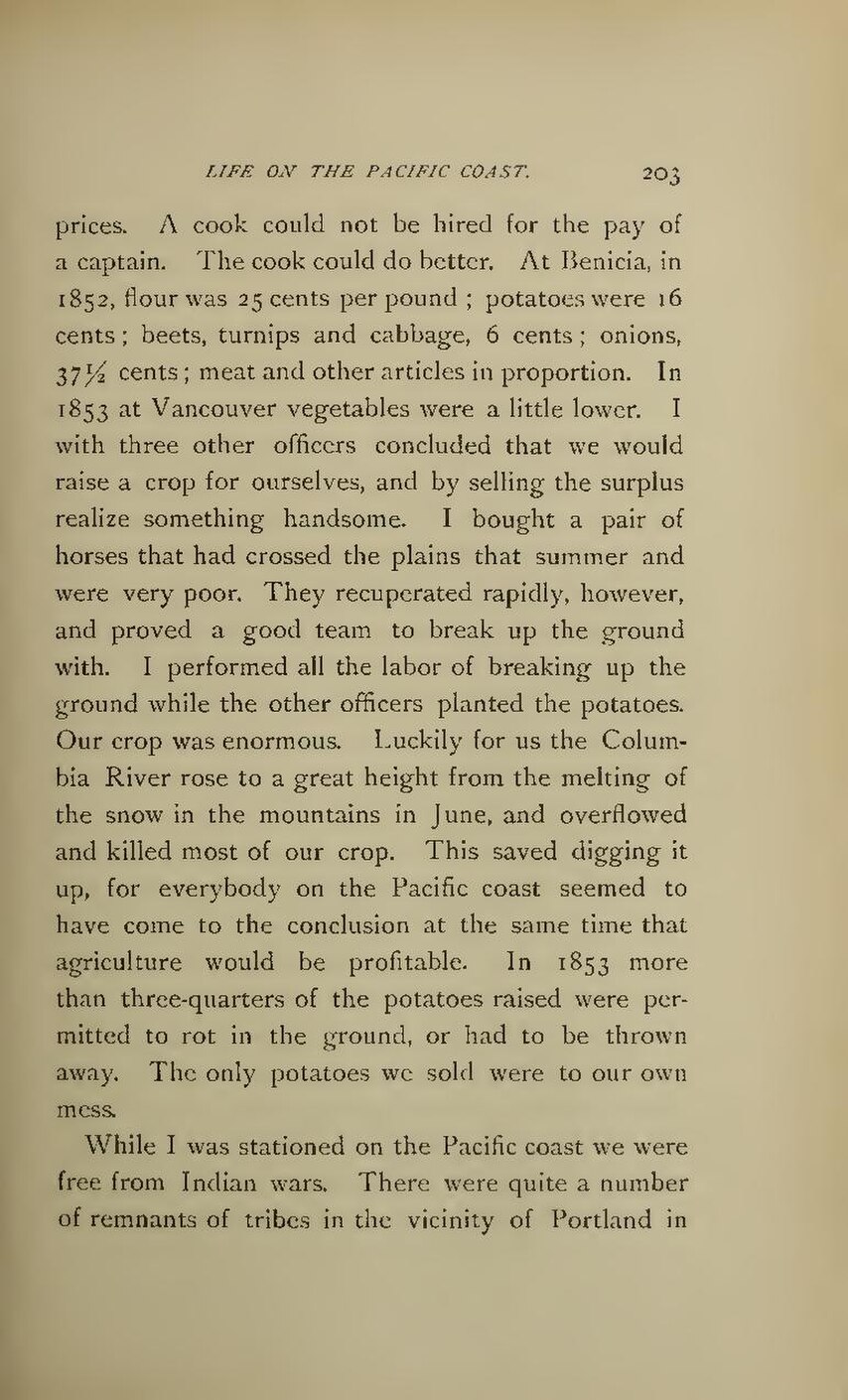prices. A cook could not be hired for the pay of a captain. The cook could do better. At Benicia, in 1852, flour was 25 cents per pound; potatoes were 16 cents; beets, turnips and cabbage, 6 cents; onions, 371⁄2 cents; meat and other articles in proportion. In 1853 at Vancouver vegetables were a little lower. I with three other officers concluded that we would raise a crop for ourselves, and by selling the surplus realize something handsome. I bought a pair of horses that had crossed the plains that summer and were very poor. They recuperated rapidly, however, and proved a good team to break up the ground with. I performed all the labor of breaking up the ground while the other officers planted the potatoes. Our crop was enormous. Luckily for us the Columbia River rose to a great height from the melting of the snow in the mountains in June, and overflowed and killed most of our crop. This saved digging it up, for everybody on the Pacific coast seemed to have come to the conclusion at the same time that agriculture would be profitable. In 1853 more than three-quarters of the potatoes raised were permitted to rot in the ground, or had to be thrown away. The only potatoes we sold were to our own mess.
While I was stationed on the Pacific coast we were free from Indian wars. There were quite a number of remnants of tribes in the vicinity of Portland
